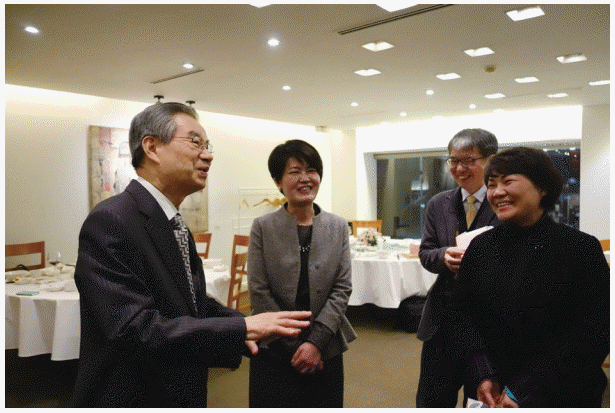The introduction of modern medicine in Korea goes hand in hand with the establishment of medical schools during the Japanese colonial period. Since then, medicine in the Republic of Korea has been greatly improved by the introduction of medical systems of the United States. Accordingly, pathology in Korea began as a basic academic discipline, but made a major shift to hospital-based surgical pathology after the Korean War. Most Korean institutions continue to practice joint operations between clinical service and experimental research. In this context, the quality of medical faculty and training has been and will continue to be a key to ensuring the quality and global competitiveness of Korean pathologists. A unique combination of residency training and graduate school education in Korea inevitably led to a stronger mentoring system compared to that in other countries. The outstanding achievements and performances of Korean scholars in surgical and experimental pathology would not have been possible without the contribution and support of great mentors.
Professor Je Geun Chi was the founder of neuropathology and pediatric pathology, and he was an enormous contributor to the development of modern pathology in Korea. He received his medical degree from Seoul National University College of Medicine in 1962. He then went on to pathology residency and subsequent neuropathology fellowship training at the Boston Children’s Hospital, Beth Israel Hospital, and Harvard Medical School. He joined the Harvard faculty in 1975. He then came back to Korea in 1976 and became a faculty member at Seoul National University. He published more than 800 articles in international journals. He served as the president of the Korean Society of Pathologists in 1996, the Korean Academy of Medical Science in 1999, and the National Academy of Medicine of Korea in 2004. After retirement, he expanded his work on magnetic resonance imaging neuroanatomy at Neuroscience Research Institute of Gachon University, and he published 7.0 Tesla MRI Brain Atlas with Professor Zang-Hee Cho.
Professor Chi was a great mentor to many of the leading pathologists in Korea today. His unique strength as a pathologist was in human embryogenesis and fetal development. The depth of his understanding of human development clearly distinguished him from other pathologists. Neurogenesis is one of the most dynamic and fascinating parts of human development, and this would partly explain Professor Chi’s enthusiasm for neuropathology and pediatric pathology. Unfortunately, he passed away on November 26, 2014. In memory of him, the November issue of the Journal of Pathology and Translational Medicine, formerly the Korean Journal of Pathology published since 1967, includes reviews and original articles written by several of his mentees, who are now leaders and great mentors in their respective fields. Their articles will provide the readers with topical and important information in the fields of neuropathology and pediatric pathology.
Dr. Yeon-Lim Suh wrote a review article on dysembryoplastic neuroepithelial tumor (DNT). The article is a great summary of the characteristics of three forms of DNT. Dr. Suk Keun Lee wrote an article on prenatal tongue development. The article is meaningful in that it is based on the collection of Professor Chi, on which Dr. Lee had been working closely with Professor Chi for decades. Drs. Sung-Hye Park and Na Rae Kim contributed an article describing the importance of ultrastructural examination in the evaluation of childhood brain tumors. Professor Chi advocated the importance of ultrastructural examination in pathology practice and research. Dr. Yi Kyeong Chun wrote a review article on neuroendocrine tumors of the female reproductive tract. The article is a comprehensive summary of neuroendocrine tumor pathology in the female reproductive tract. Dr. Yeon Mee Kim described the pathological features of acute atherosis in spiral arteries, introducing its clinical significance and relationship with poor placentation in human pregnancy. Dr. Jung-Sun Kim described the incidence and significance of chronic chorioamnionitis (maternal anti-fetal cellular rejection) in twin gestations. The clinical significance of chronic chorioamnionitis is becoming more appreciated in maternal and fetal medicine.
The term ‘mentor’ originates from the Greek mythology the Odyssey. Mentor was a great, trusted counselor of Odysseus’ son Telemachus. Professor Chi was a great teacher, friend, counselor, and writer. He left his beloved family, friends, and mentees behind (Fig. 1). He was a dedicated pathologist who left behind a tremendous legacy in the field. His views on pathology are available online ((http://navercast.naver.com/contents.nhn?rid=83&contents_id=41771).
The editors of the Journal of Pathology and Translational Medicine deeply miss the great mentorship of Professor Chi and would like to express special thanks to the mentees of Professor Chi for their special contributions to the November issue.
Conflicts of Interest
No potential conflict of interest relevant to this article was reported.
Fig. 1. Professor Chi (on the left) celebrates his 77th birthday with his mentees.

Citations
Citations to this article as recorded by



 PubReader
PubReader ePub Link
ePub Link Cite this Article
Cite this Article


 E-submission
E-submission




